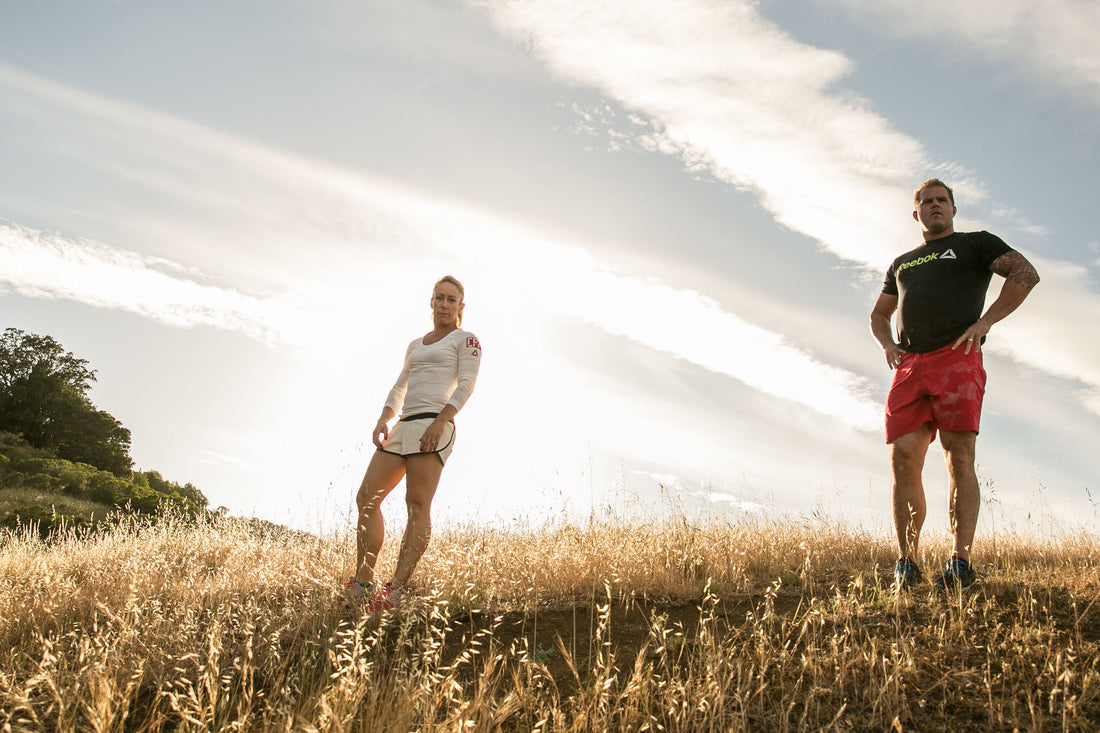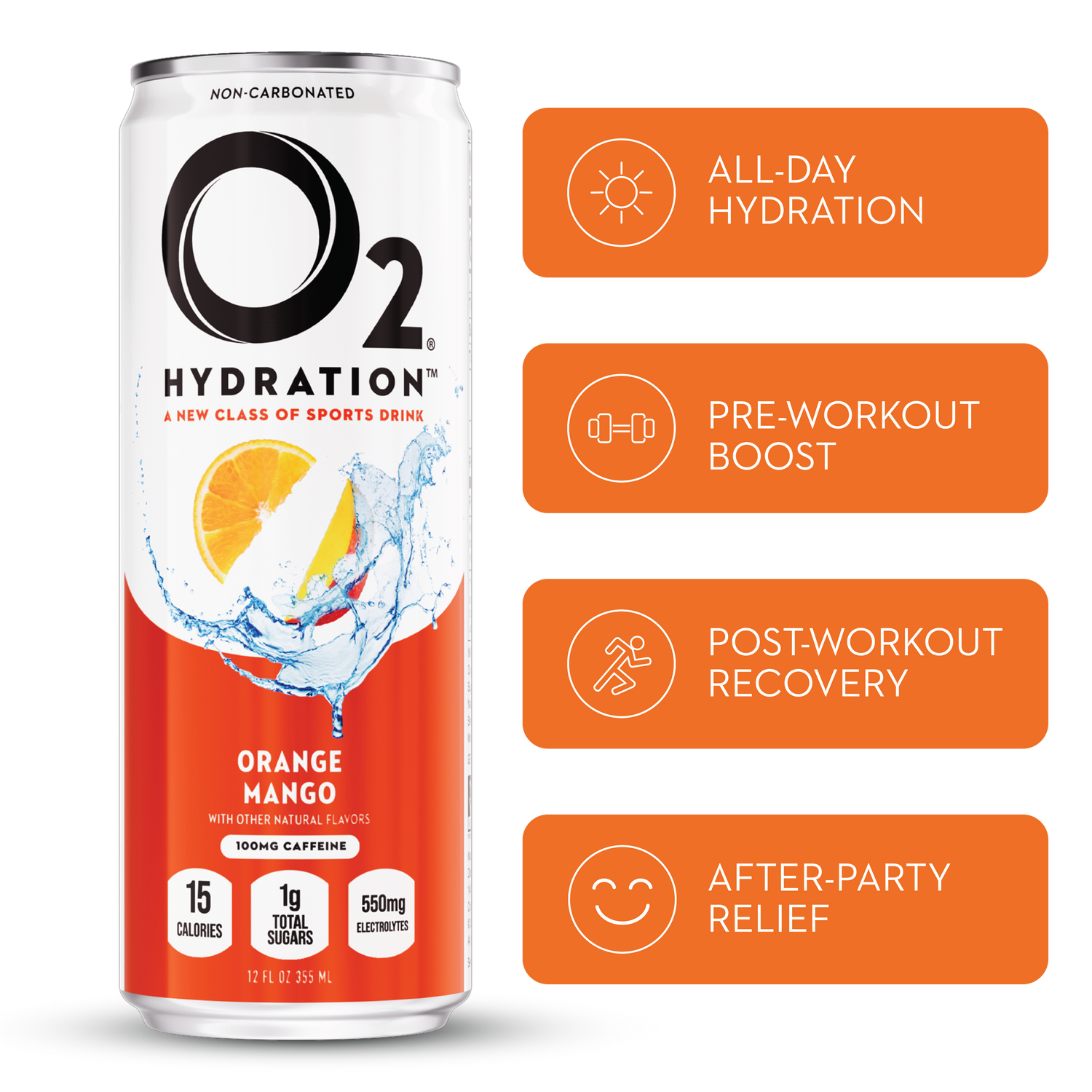
TRS Series Part 4: Q&A with Kelly and Juliet Starrett
Share
In Part 4 of our series, O2 sat down with Kelly and Juliet Starrett - parents, world-class athletes, and business partners who co-founded San Francisco CrossFit and MobilityWOD, now The Ready State.
Thank you both for joining us! Individually, you are well-known as athletes and influencers in the fitness community. How long have you been married and working together?
Juliet: We got married in 2003. We’ve been together for 21 years, and we’ve been working together officially since 2004, as we started to envision owning a CrossFit gym together.
Kelly and I have this really unique partnership and something I feel very lucky about. We both have a lot of skills and abilities, but they are totally different from each other. We’re kind of yin and yang, and that’s sort of a secret to our success as a couple that works together.
Even though we work together we obviously have to put our heads together to plan and negotiate big decisions around our businesses. We have this thing we like to talk about called the “Feelings Meeting” where we get together once a week and we talk about our feelings, and the only rule is a no-defensiveness rule. So, if there’s anything bugging either one of us - from a business standpoint, or a personal standpoint, or a relationship standpoint, or something that’s going on with our kids - this is our moment, our free time, to air our grievances and talk about what’s bugging us or not working.
Part of it, honestly, is just plain luck. Kelly and I are very sympatico as humans. While we have very different skill sets when it comes to the business, I think we have similar sensibilities. I think we have very similar risk tolerances. We want to do the same things, and sort of have the same vision for our future. As our business has grown, in a weird way it’s actually gotten easier. We’ve sort of figured out a flow.
I don’t think it would work in every single relationship. It is not without challenges. It’s a really special relationship, and something I feel grateful for every day.
Kelly: Let me add that Juliet is a very unique amalgam of freakish talents. She’s the greatest training partner I’ve ever had, a two-, three-time world champion paddler, and she also happens to be this savage attorney - but has a CEO brain. Her brain works in ways I can’t comprehend.
She may kid around, but Juliet’s organizational development skills are the reason why any of this exists. Because I accidentally married the greatest CEO you could possibly find.
Juliet: [Laughs]
You talk about complementing one another’s skills and sharing the same vision, but you also say luck plays its part. Can you remember the time it hit you, like, “Damn, this really works.”
Kelly: I met Juliet in Chile on the bank of a Class 5 river, scouting for a big [whitewater rafting] race, and already I was smitten. Right? This was a woman at the peak of her athletic powers, and tells me she’s an internet professional in San Francisco and is going to law school. So already I was, like, “Oh, this is a formidable human being.”
We already knew we worked well together because we’d traveled together, we river guided together, we had problem-solved and done expeditions together. But, this is really crucial: we trained and exercised together.
One of the things any couple who’s worked out together knows is you can’t hide who you are in the middle of a hateful workset. You’re gonna find and expose who you are. So much of the natural rhythm that Juliet and I have as working business partners we already knew because we had already stress tested ourselves at the world championships. On river trips. Training together every day. So, some of that wasn’t mysterious.
But, I will say that, like everyone else, there comes a time when you’re like, “Holy moly, we’re close to burnout and our lives are gnarly,” and we make a concerted effort to remind ourselves that we’re always on the same team.
Then we run everything through this filter: does this decision we’re making ultimately get our family more time together? That became a very, very useful tool in making better decisions. Ultimately, the goal for Juliet and I is to have a more integrated, more fun, dope family life. That’s it. There’s nothing else that matters.
Juliet: I don’t know that I had an “aha moment” where I thought, “Oh my God this is amazing, this partnership’s amazing,” but I think at the core we both have this equal, amazing, deep, profound respect for one another, and for what the other brings to the table - as a parent, as a spouse, and as a co-founder of a business together. Without that, it would definitely never work.
The Ready State is partnering with O2 to spread the word about hydration and mobility. What’s your view on partnerships like this (good people behind good companies, coming together to do good things) as business owners?
Juliet: In neither case, with San Francisco CrossFit nor MobilityWOD-turned-The Ready State, did we start with planning them to be businesses.
We started the gym because we fell in love with CrossFit, there were no CrossFits in San Francisco, we loved training with our friends, we wanted to create community ... and we solved that problem by opening up our own gym.
In the case of MobilityWOD-turned-The Ready State, we started realizing people had no understanding of how their bodies worked; no tools whatsoever to be able to take care of themselves, so in that case we also saw a problem we wanted to solve.
In neither case did we make a business plan, figure out how we could make money, take on investors, create a deck - do all the traditional stuff people do to run a business. I mean, we really weren’t thinking in those terms. We started both of our businesses to try to help create community, solve problems, create fun experiences for people … we did not start our businesses to make money.
If Kelly and I could pay our mortgage and go on a few trips every year by just creating free content on the internet, I would happily do that. We are not always the most natural business people/salespeople. At our core, our mission is to help people feel better and understand how their bodies work. The fact that we’ve turned it into a business is an afterthought, and I think that ethos is what our whole business is about. And, I know we share that with O2, and it’s one of the reasons why we like working with you guys.
Kelly: I’ll say the hallmark of businesses that we really like is that they do the right thing for the right reason. It’s easy, because the founder of O2 has been a user of The Ready State since we started, and we loved O2 long before we ever reached out or became friends with O2. That natural alliance makes it so easy to work together; because we both like each others’ stuff.
Juliet: We do not enter into partnerships with people we don’t like. That may not be the strategy to win hundreds of millions of dollars of investment capital, but that’s not really our goal. If we’re gonna spend time and interact with people, and help promote other peoples’ products, we need to be really into them and what they’re doing.
You’ve both had enduring careers in fitness, no doubt magnified by your mutual support. You’re obviously big influencers in the space. How do you feel about your legacy and history in championing health and wellness in America?
Juliet: I think CrossFit was one of the biggest things to happen to fitness in our living memory. It really changed the way people thought about fitness, boutique fitness, how people trained, what was possible in the fitness business ... But I also think Kelly’s contribution - and the drop of [his book] Supple Leopard - was one of those inflection moments in this business.
I can’t emphasize enough that no one was talking about movement, movement quality, mechanics, and giving anyone tools and solutions to actually be able to manage those things on their own. This was the Dark Ages, and I think that was the secret sauce as to why The Supple Leopard was such a breakout successful book. There was nothing like it. No one was thinking in those terms, nobody was sharing information; that there were actually some really simple, relatable tools that people could use on their gym floor or at home to take care of their bodies, and feel better.
Kelly and I are just starting to be able to distill our message about what we think is important, and how we think people should be approaching their health. We somehow haven’t really been able to bring in the larger population into this little vertical that we’re in, in which we are continuing to improve ourselves.
As I look back, I think we’ve done some really cool work and made an impact in this universe. As Kelly and I look forward, I think what we want to try to do, and the legacy we want, is to figure out how we can take what we’ve all learned in this fitness vertical and get it out to the greater population.
Kelly: We now have this embarrassment of riches in being able to communicate through various channels, which means it’s easier to give people the information and tools to help them make more informed decisions. Juliet and I feel like we just finished our beginner’s apprenticeship; we feel like we’ve only just begun.
Coming through this pandemic, we’ve had this interesting observation about how the world was stress tested. What we saw was - man, we haven’t done a great job of being able to take care of ourselves, and manage these things, and a lot of our institutions didn’t work as well as we had liked.
So, it’s a chance to reconceptualize who owns what and who’s responsible. This is kind of an E.O. Wilson evolutionary psychologist-biologist [moment]. The highest goals of science are to serve humanity. Apply that rubric to how we’re doing - fitness is not serving humanity. Fitness is an artifact, a sideshow; entertainment at best, and vanity at worst. We haven’t really improved people’s lives.
We’ve always believed our goal was to take what we’ve learned at the highest levels of athletics and sports, and bring those principles back. Our job is to continue to translate that experience for people who don’t live in that world; who have their expertise and distractions in other places.
We’re just getting started here, and we’ll see where we are in 10 years. I don’t know if we can judge our impact yet. That’s still premature. But, we have the right friends in the right places, and we seem to be doing the right things. So, we just need to let that ride a little bit longer.
